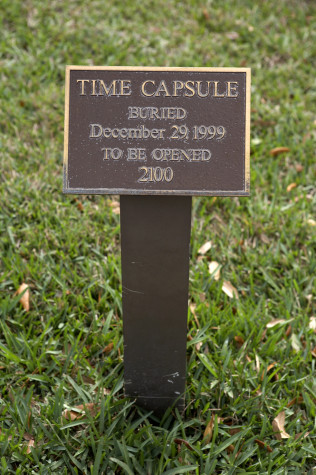A year ago this month, I followed some random link and came upon 10Q, a site that promises to ask you 10 questions over a period of 10 days and then send your answers to your inbox after a one-year interlude. The questions were generic but reflective: “Describe a significant experience that has happened in the past year. How did it affect you?” “Is there something you wish you’d done differently this past year?” “How would you like to improve yourself and your life over the next year?”
I’m sure I forgot about 10Q the day after I answered the last question. Then this week, true to its word, 10Q sent me a little care package from the past. It felt grounding to read all of those familiar but dated sentiments. Though one year isn’t all that long in adulthood, the intervening time had brought all kinds of new elements into my life that I could never have predicted a year ago.
There’s something about time capsules that evokes wonder. Ancient voices speaking from beyond the grave – or the childlike sentiments of one now elderly – trigger a deeply engrained awe. Perhaps it’s a holdover from ancestor worship. The most mundane object takes on grave significance as part of a missive to the future. It’s even become a hackneyed movie trope: The dying parent records himself: “I’ll never meet you, son, but happy 16th birthday. Enclosed is the watch my own father gave to me.”
My old school buried a time capsule with the opening of a new building. In that ceremony, there was an assumption that we shared an affinity with the future openers – they were assumed to care about our lives because they would be the future versions of us, with the same school loyalty. But the school has since been rolled into a conglomerate and changed its name, and I’d be surprised if anyone is keeping track of when that capsule is meant to be dug up and unsealed. Surprisingly often, the date of intended opening is just as lost to history as the objects a time capsule contains.
Capsules sent to outer space for who-knows-what to find contain different sorts of loot, and they set us thinking about fundamental questions. In order to teach a stranger who we are, we have to know ourselves and choose the bare minimum of items to convey that essence.
In short, I love the idea of time capsules, and I’ve started to use them. So it startled me when one of my favorite authors, Margaret Atwood, announced she was going to contribute a book for the Library of the Future – a book that couldn’t be read for 100 years. The act itself didn’t surprise me; Atwood is always adopting new ideas and writing prescient things. But my own reaction was alien to me: I felt betrayed. Not only will I never get to read this book, but my children won’t either.
I could understand it if her work were in danger of being lost to history, but she must be quite secure in her legacy by now. That book will be available 100 years from now anyway, so all she’s doing is depriving us of it in the mean time. But of course, a book written for the future is radically different from one written for the present. It assumes everyone you know is dead, and so are their children.
In 1963, General Dynamics sealed a 100-year time capsule filled with predictions by astronauts, astronomers, and others as to how things would be in the year 2063. Astronaut John Glenn is banking on an anti-gravity system, and astronomer William Pickering predicts light-speed travel to local stars. Gay marriage is nowhere to be found. Not just a curiosity, these kinds of packages from the past are like 10Qs for our countries. We’re reminded that our fates are not just important to us – they meant something to those who came before, for our lives are their legacy.
Image: Shutterstock
